
Olivia Hart
Biochemist · Nutritional Science Expert · Public Health Educator
Olivia Hart is an expert in biochemistry, nutritional science, and public health education with over a decade of hands-on experience. Holding a Master’s degree in Biochemistry, she has dedicated her career to bridging the gap between complex scientific research and practical everyday wellness.
Olivia strongly believes that good health starts with clear understanding. Her mission is to turn peer-reviewed research into accurate, accessible, and actionable health advice that empowers readers to make informed decisions.
She carefully analyzes credible sources — focusing on rigorously reviewed academic studies — and translates them into practical recommendations on nutrition, lifestyle, and disease prevention.
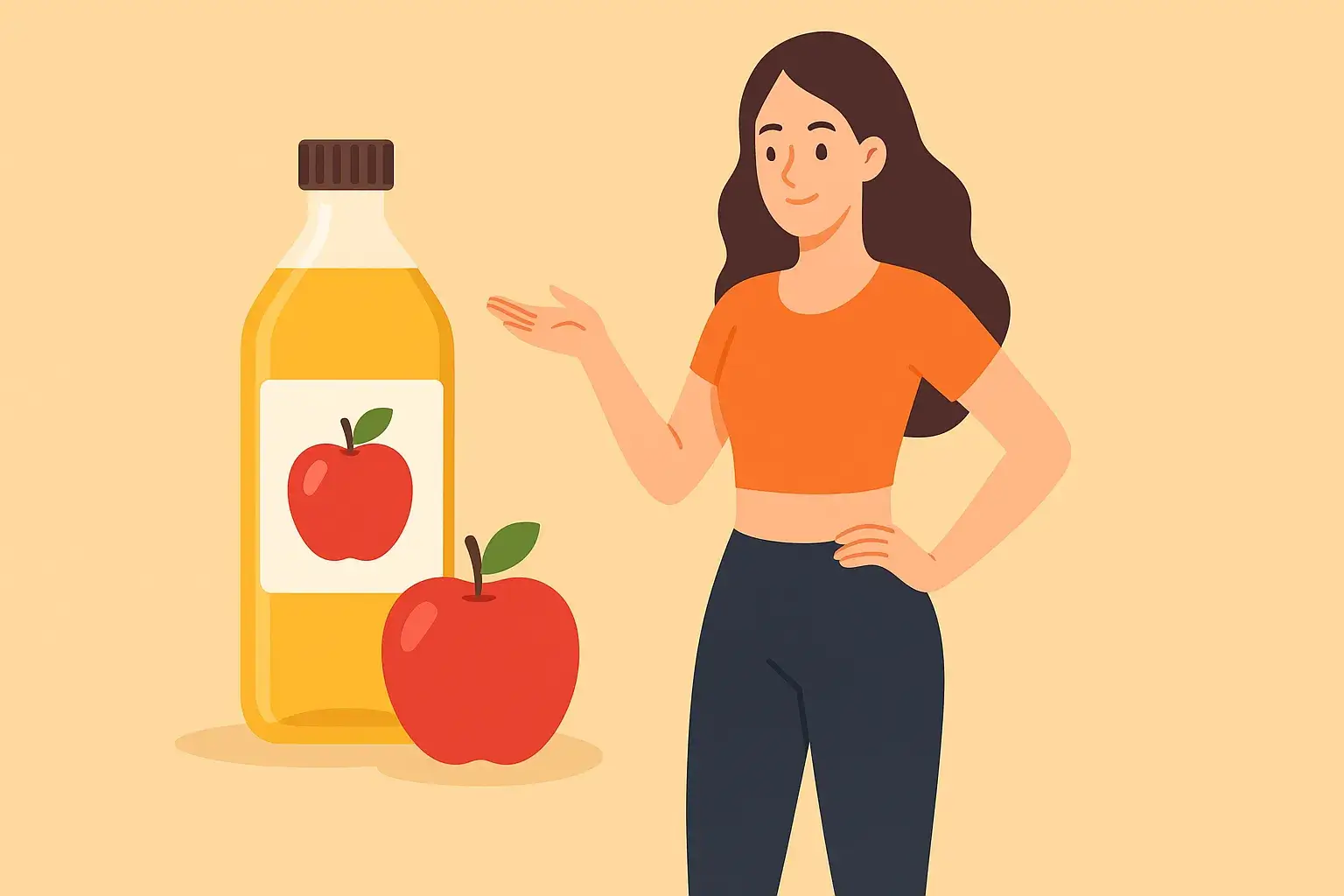
ACV for Weight Loss: What the Science Says
Apple Cider Vinegar for Weight Loss: An Evidence-Based Look Apple Cider Vinegar (ACV) is frequently promoted as a natural weight loss aid, but what does the scientific evidence actually say? In a world of wellness trends, it’s crucial to separate anecdotal claims from clinical proof. This article delves into the research-backed mechanisms behind ACV, its documented effects on weight …
Read More
Short Videos & Your Brain: The Hidden Impact
Introduction: The Unseen Cost of a Quick Scroll In the spaces between tasks—waiting for coffee, riding the elevator, or winding down before bed—millions of us turn to the vibrant, endless stream of short-form videos on platforms like TikTok, Instagram Reels, and YouTube Shorts. While seemingly harmless, this habit is having a profound and measurable impact on our brain’s structure and …
Read More
Walk to Live: Lower Your Mortality Risk
In a world chasing complex fitness trends and expensive gym memberships, one of the most powerful tools for enhancing health and longevity is also the simplest: walking. This fundamental human movement, often overlooked, is a cornerstone of preventive medicine, backed by a robust body of scientific evidence. Consistent daily walking is not just about burning calories; it’s a profound biological …
Read More
Olive Oil: Key to Heart Health
For centuries, the Mediterranean diet has been celebrated for its profound health benefits, consistently linked to longevity and robust heart health. While this dietary pattern emphasizes a rich variety of vegetables, fruits, whole grains, fish, and legumes, scientific inquiry increasingly points to one component as a standout contributor to its cardiovascular prowess: extra virgin olive oil …
Read More
Chicory: Health Benefits & Pregnancy Safety
Chicory (Cichorium intybus), a plant celebrated for its culinary versatility and historical medicinal use, presents a compelling nutritional profile. While it offers several health advantages, its consumption during pregnancy requires a careful, evidence-based approach. This article delves into chicory’s benefits, particularly its rich inulin content, and critically examines the potential …
Read More
Cholesterol & Arteries: Science-Backed Guide
Understanding Cholesterol and Its Journey in Your Body Cholesterol often gets a bad rap, but it’s a waxy, fat-like substance that’s absolutely essential for life. Your body, primarily your liver, produces most of the cholesterol it needs to build healthy cells, produce vital hormones (like estrogen and testosterone), and synthesize vitamin D [6]. A smaller portion comes from the foods …
Read More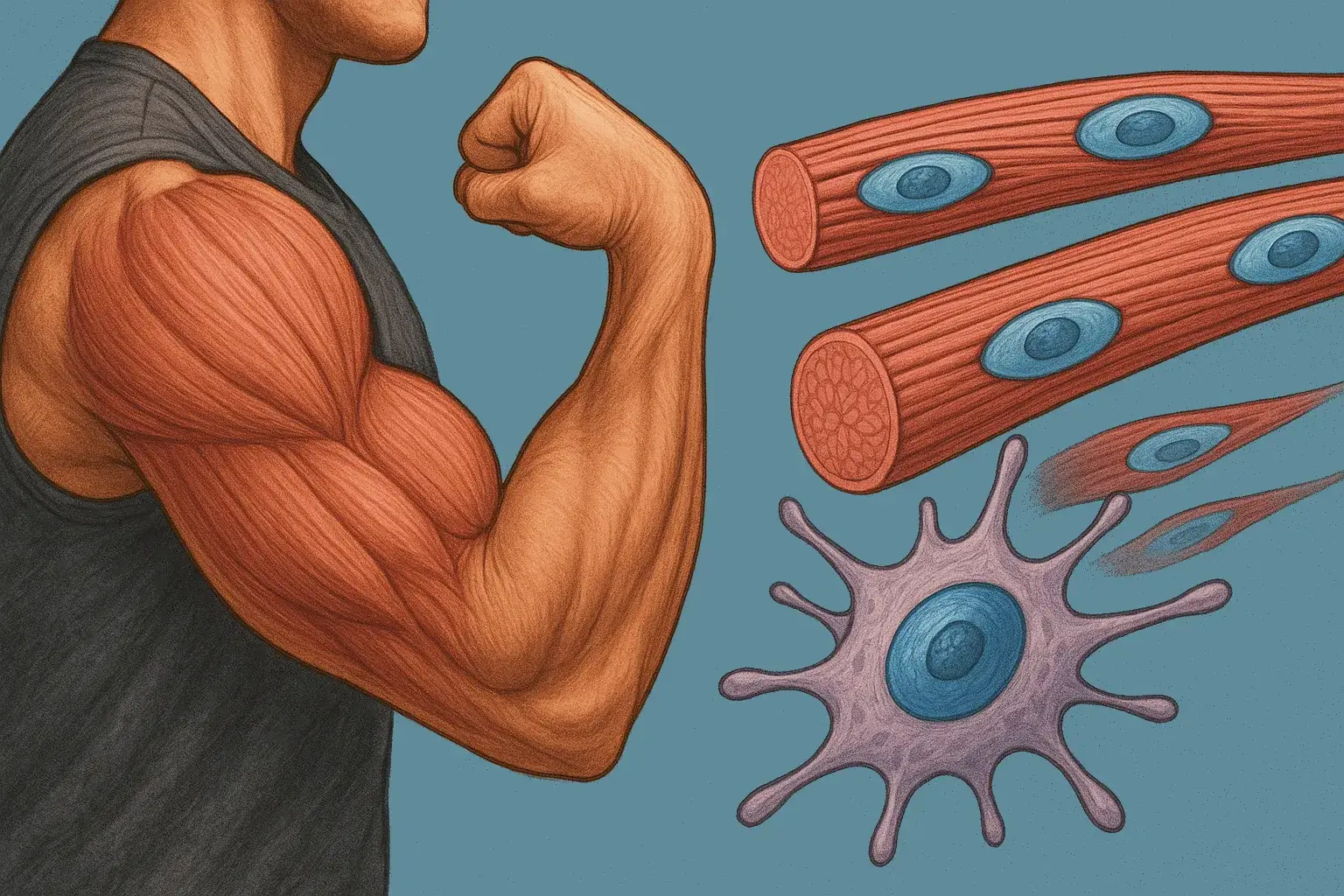
The Enduring Strength: How Muscle Memory and Satellite Cells Shape Lifelong Fitness
Ever wondered why it feels easier to regain muscle mass after a break than it was to build it initially? This common experience, often dubbed “muscle memory,” isn’t just a feeling—it’s a profound biological phenomenon rooted in your cells. Recent scientific advancements are shedding light on exactly how does muscle memory work biologically, paving the way for smarter …
Read More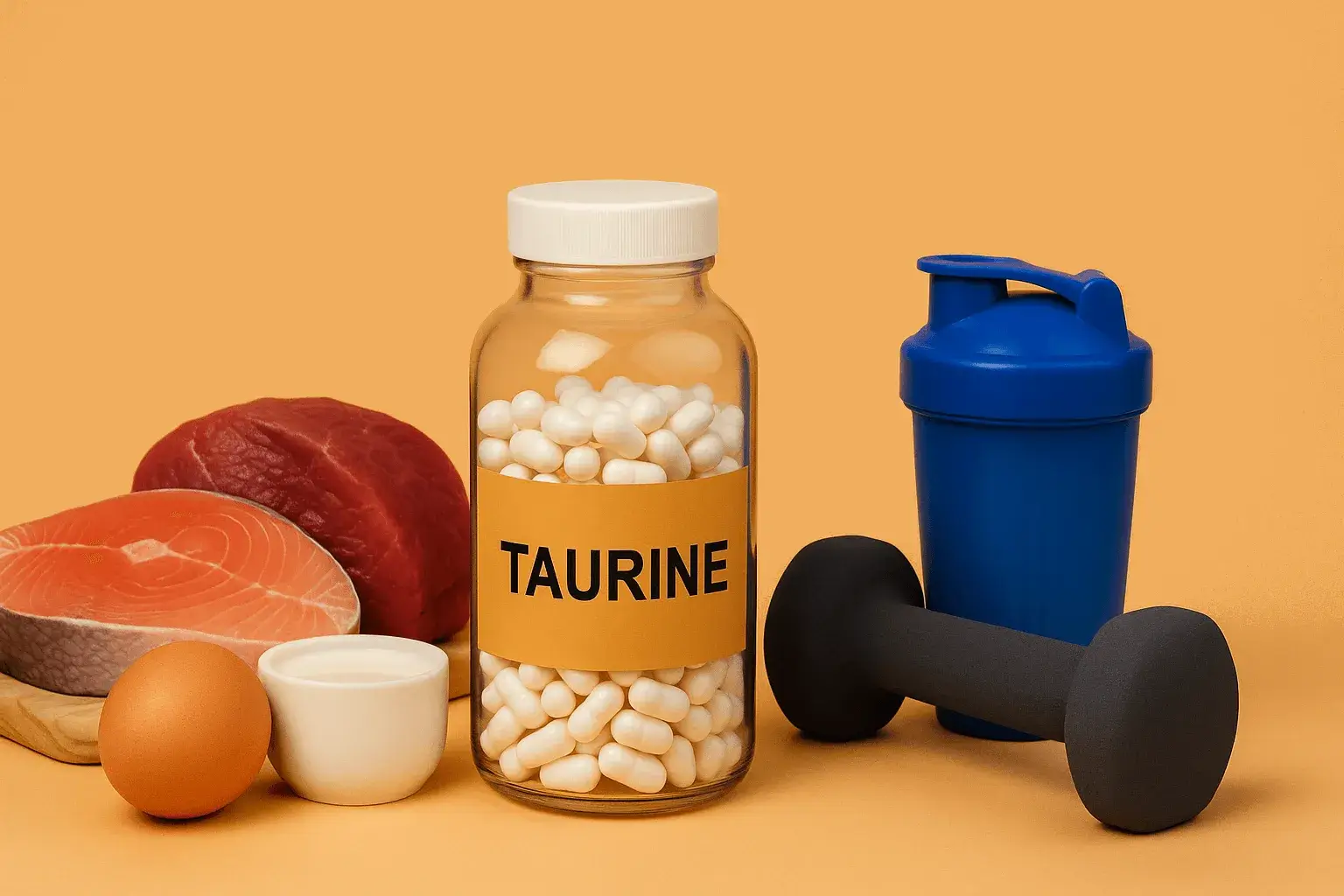
Taurine: Benefits, Uses, and Safety
You’ve likely encountered taurine on the ingredient list of energy drinks or pre-workout formulas, but this fascinating molecule is far more than just a supplement additive. Taurine is a naturally occurring, sulfur-containing amino sulfonic acid—often referred to as an amino acid—that plays a surprisingly diverse and vital role in your overall health and physiological function [1], [11]. While …
Read More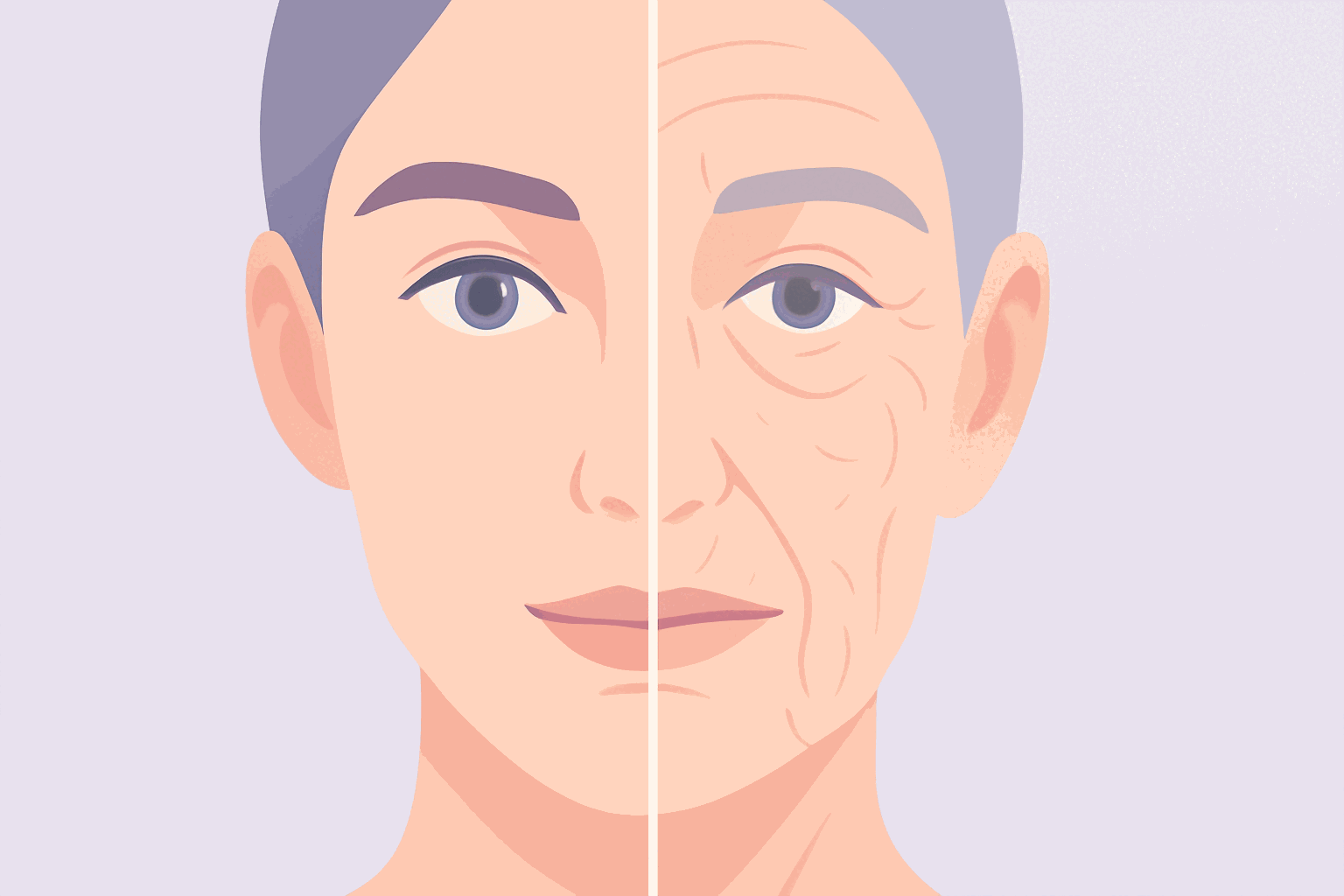
Hyaluronic Acid and Skin Health: What Science Says
Hyaluronic Acid and Skin Health: What Science Says About Its Benefits Hyaluronic acid (HA) has cemented its place as a star ingredient in skincare and a popular dietary supplement. But beyond the marketing hype, what does rigorous scientific research reveal about its true impact on skin health? This article delves into the evidence-based benefits of hyaluronic acid, exploring its mechanisms for …
Read More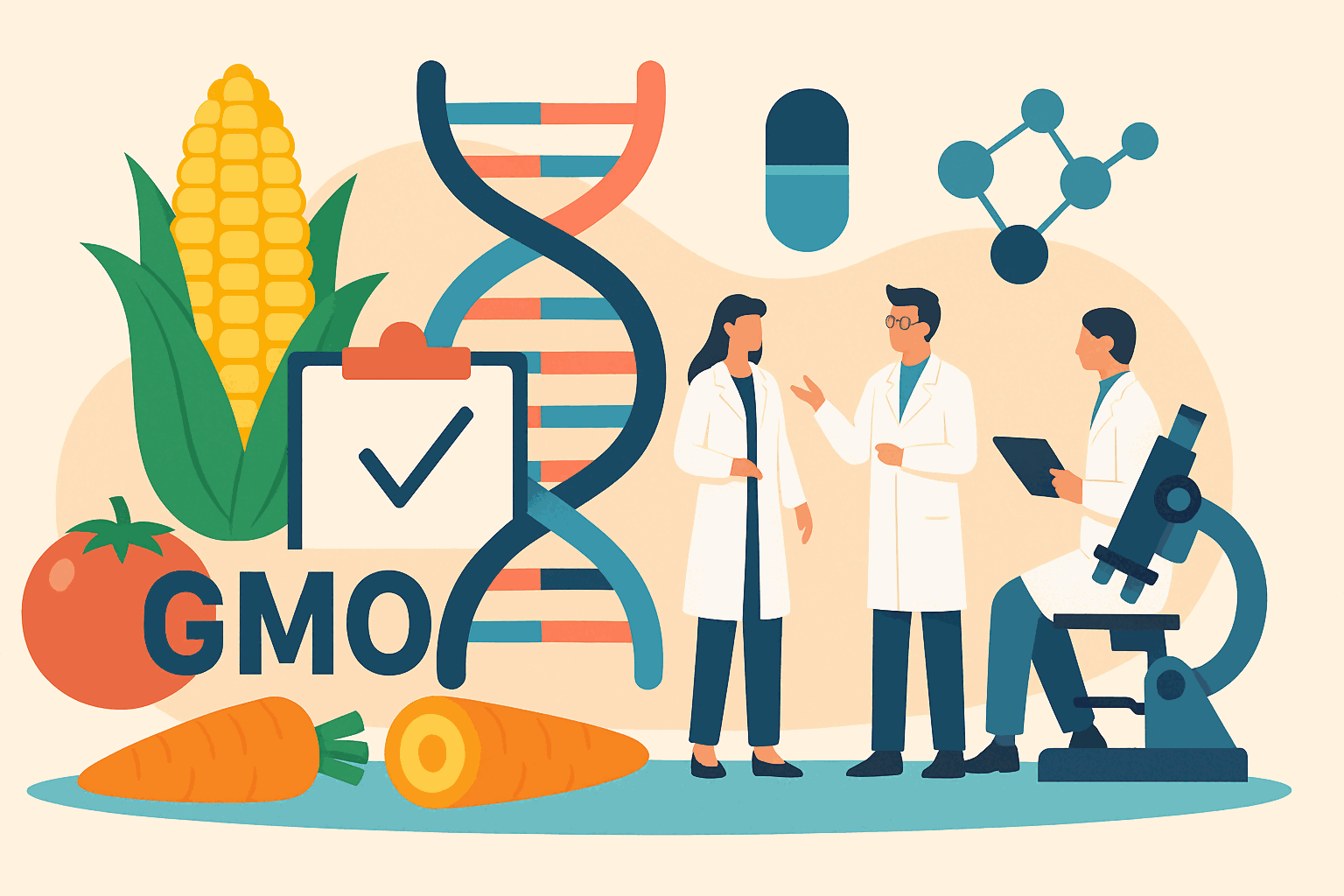
GMOs: A Science-Backed Look at Safety, Benefits, and Your Health
The GMO Question: An Evidence-Based Revisit Here at BioBrain, we prioritize science and data. While we believed the scientific consensus on Genetically Modified Organisms (GMOs) was well-established, a thoughtful reader’s query prompted us to delve deeper. It’s clear that understanding GMOs—thoroughly and factually—remains crucial for informed health choices.
Read More
The Science of Sanctuary: Optimal Indoor Temperature and Humidity for Peak Health and Performance
The Unseen Architect: Why Your Indoor Climate Dictates Your Well-being The quest for a comfortable indoor environment is universal, sparking countless debates from living rooms to boardrooms. While personal preferences for a “cool and humid” or “warm and dry” space abound, a robust body of scientific evidence points towards specific environmental parameters that transcend …
Read More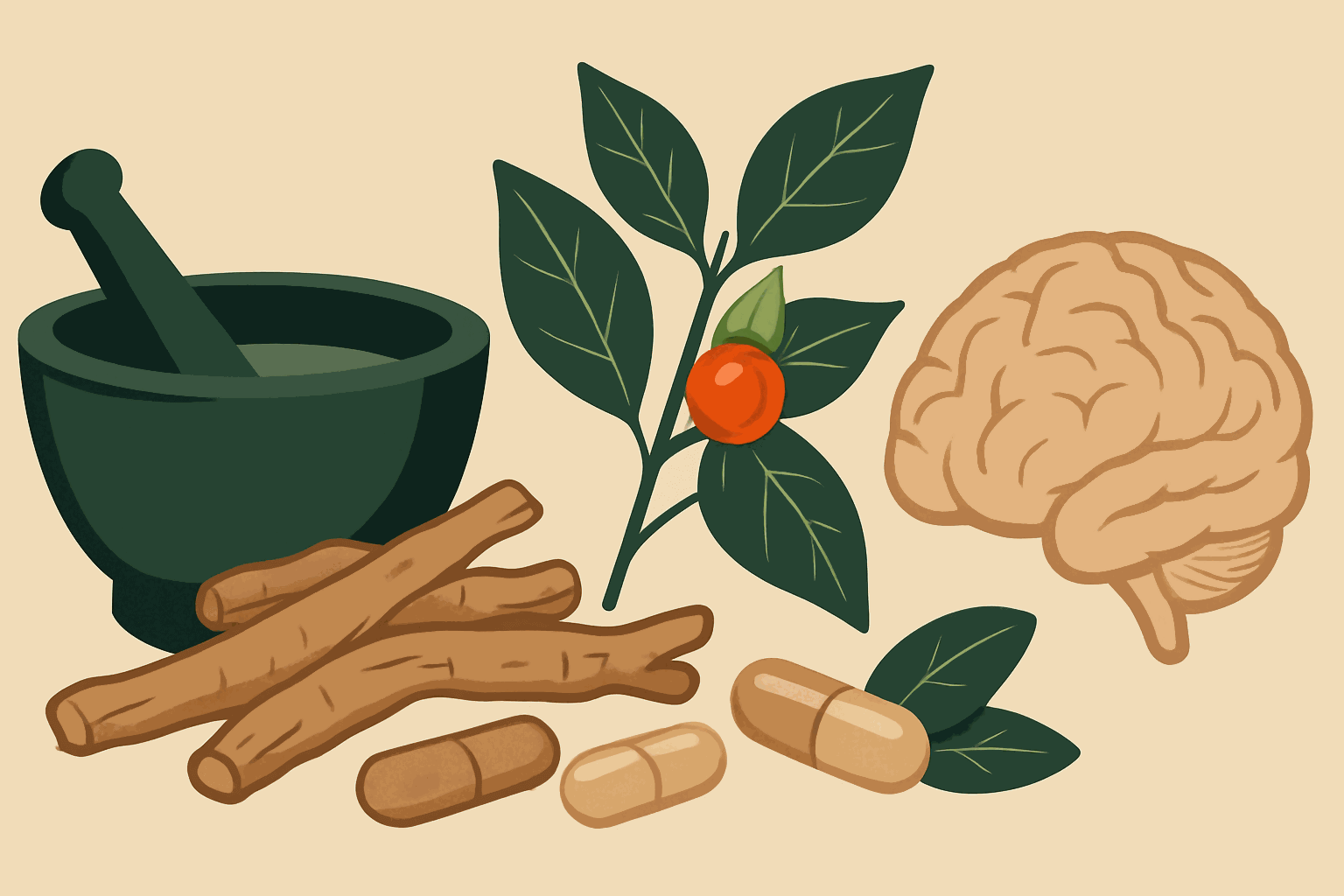
Ashwagandha: Unpacking the Science Behind This Ancient Adaptogen
Fast Facts: Ashwagandha TLDR Ancient Roots, Modern Science: Ashwagandha ($Withania$ $somnifera$) is an adaptogenic herb with a long history in Ayurvedic medicine, now studied for its health benefits. Stress and Anxiety Buster: Research indicates ashwagandha may help reduce stress, anxiety, and levels of the stress hormone cortisol. Sleep Promoter: Evidence suggests it can improve sleep quality, …
Read More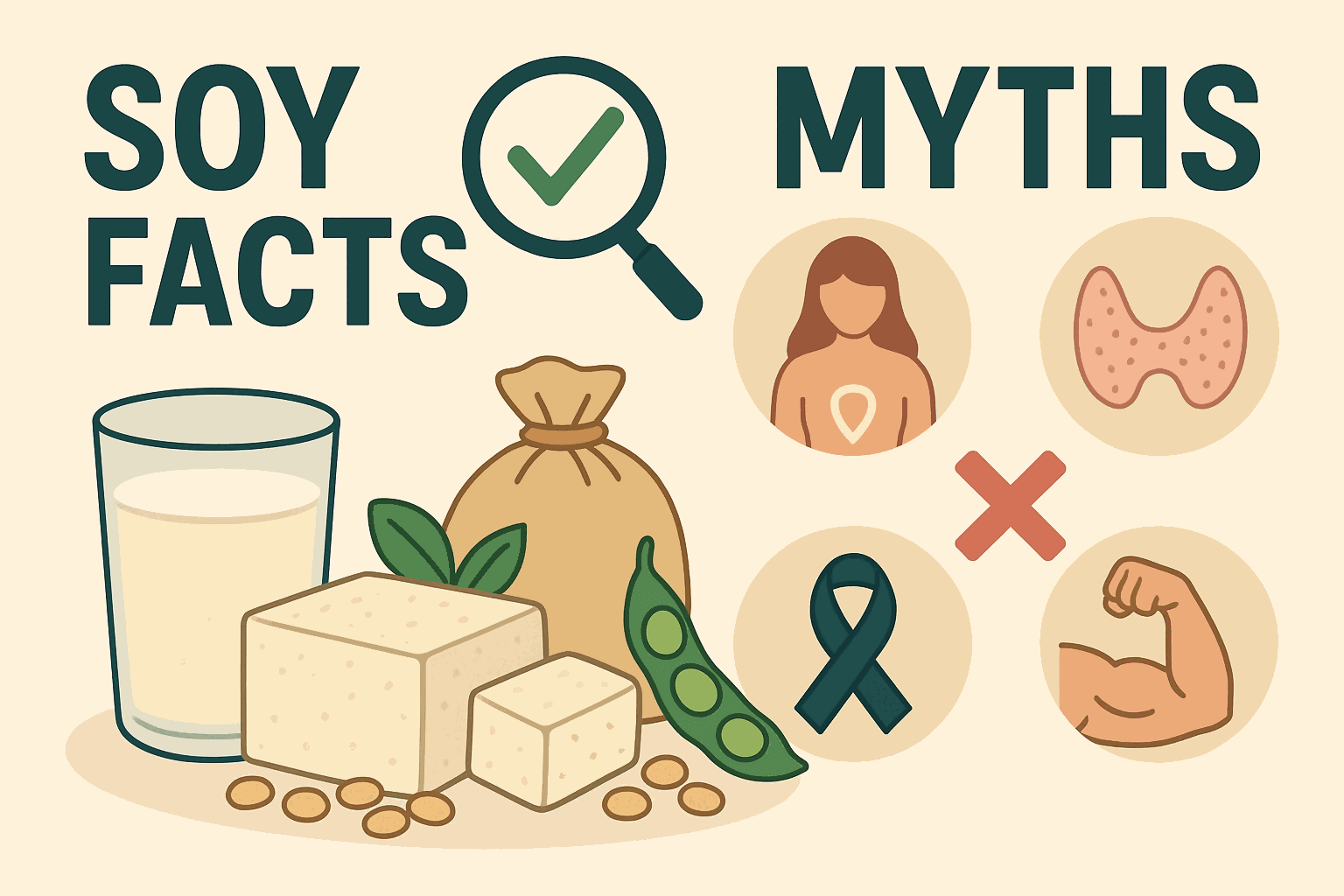
Soy Unveiled: Debunking Myths with Science and Uncovering Health Realities
Fast Facts: Soy at a Glance Men’s Health: Scientific consensus shows soy does not negatively impact testosterone or “feminize” men when consumed in normal dietary amounts. Concerns arise from extreme, unrealistic intake levels. Thyroid Function: Soy is generally safe for the thyroid in individuals with adequate iodine intake. However, it can affect the absorption of thyroid …
Read More
The Physiological Sigh: A Science-Backed Tool for Rapid Stress Regulation
In our fast-paced lives, stress can often feel like an unwelcome constant. While complex solutions abound, sometimes the most effective tools are the simplest and most innate. Enter the physiological sigh, a remarkably efficient breathing technique grounded in robust science, offering a quick and accessible way to manage stress and anxiety in real-time. This isn’t just about taking a …
Read More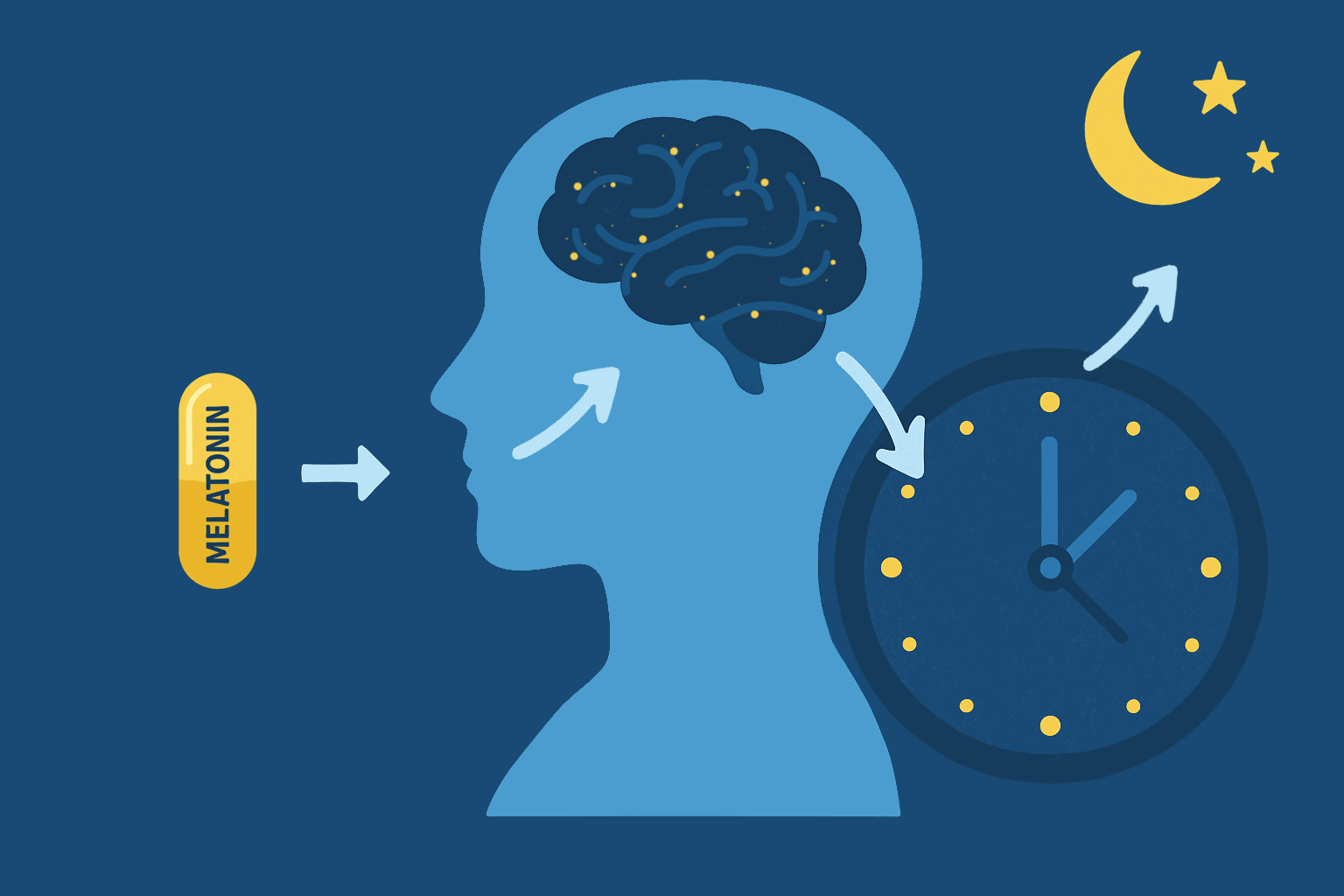
Melatonin: Hormone, Not Just a Harmless Sleep Aid
Melatonin: Understanding the Body’s Natural Sleep Signal Melatonin is widely known and increasingly popular as an over-the-counter sleep aid. However, it’s crucial to understand that melatonin is not merely a supplement; it’s a potent hormone naturally produced by the pineal gland in your brain. Its primary role is to regulate the body’s circadian rhythm – our internal …
Read More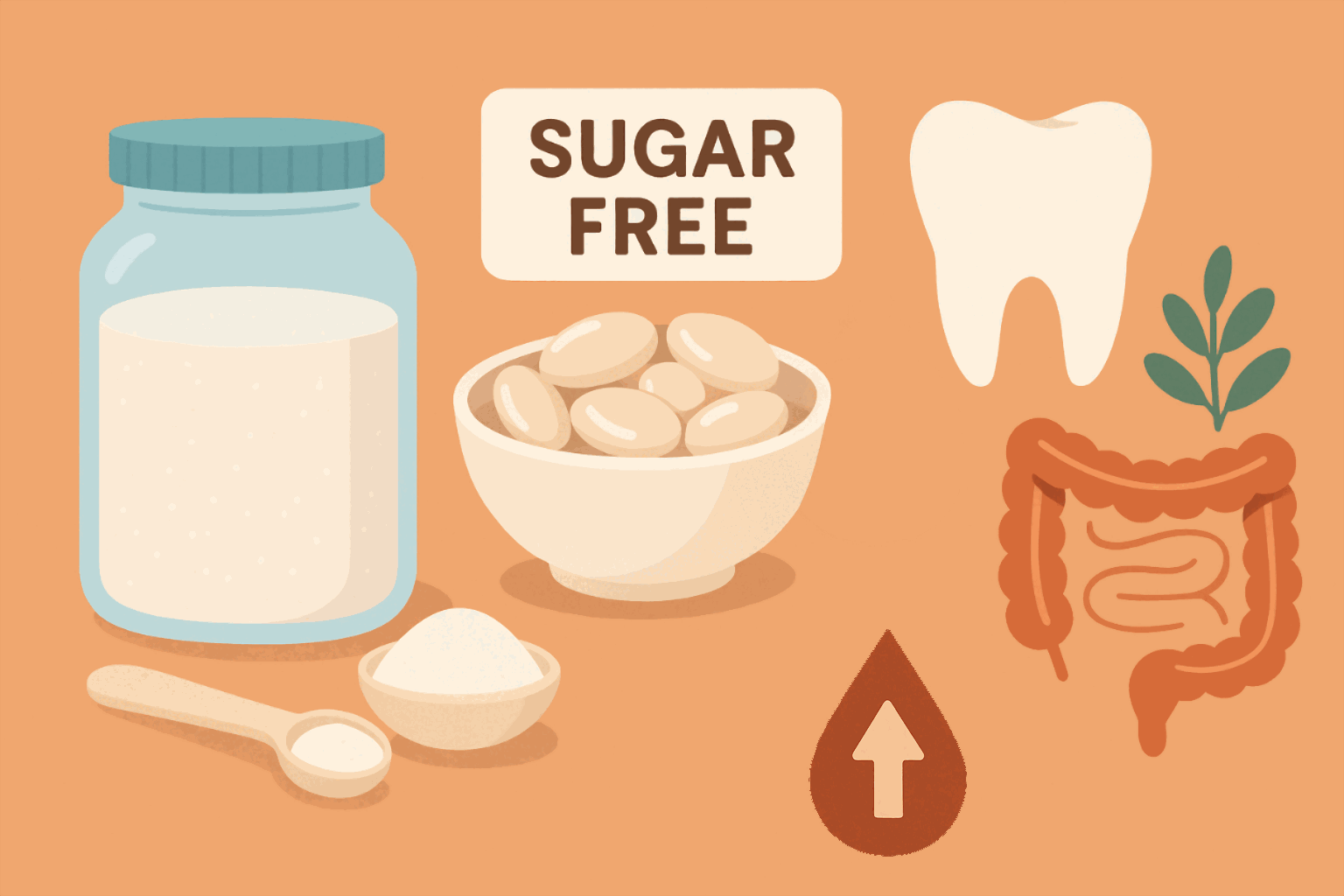
Maltitol: The Sweet Truth About This Sugar Substitute
What is Maltitol? In the quest for healthier lifestyles and reduced sugar intake, many people turn to sugar substitutes. One popular option found in countless “sugar-free” products is maltitol. But what exactly is it, and is it a good choice? This article explores maltitol, grounded in science, common sense, and evidence-based medicine. Maltitol belongs to a family of sweeteners called …
Read More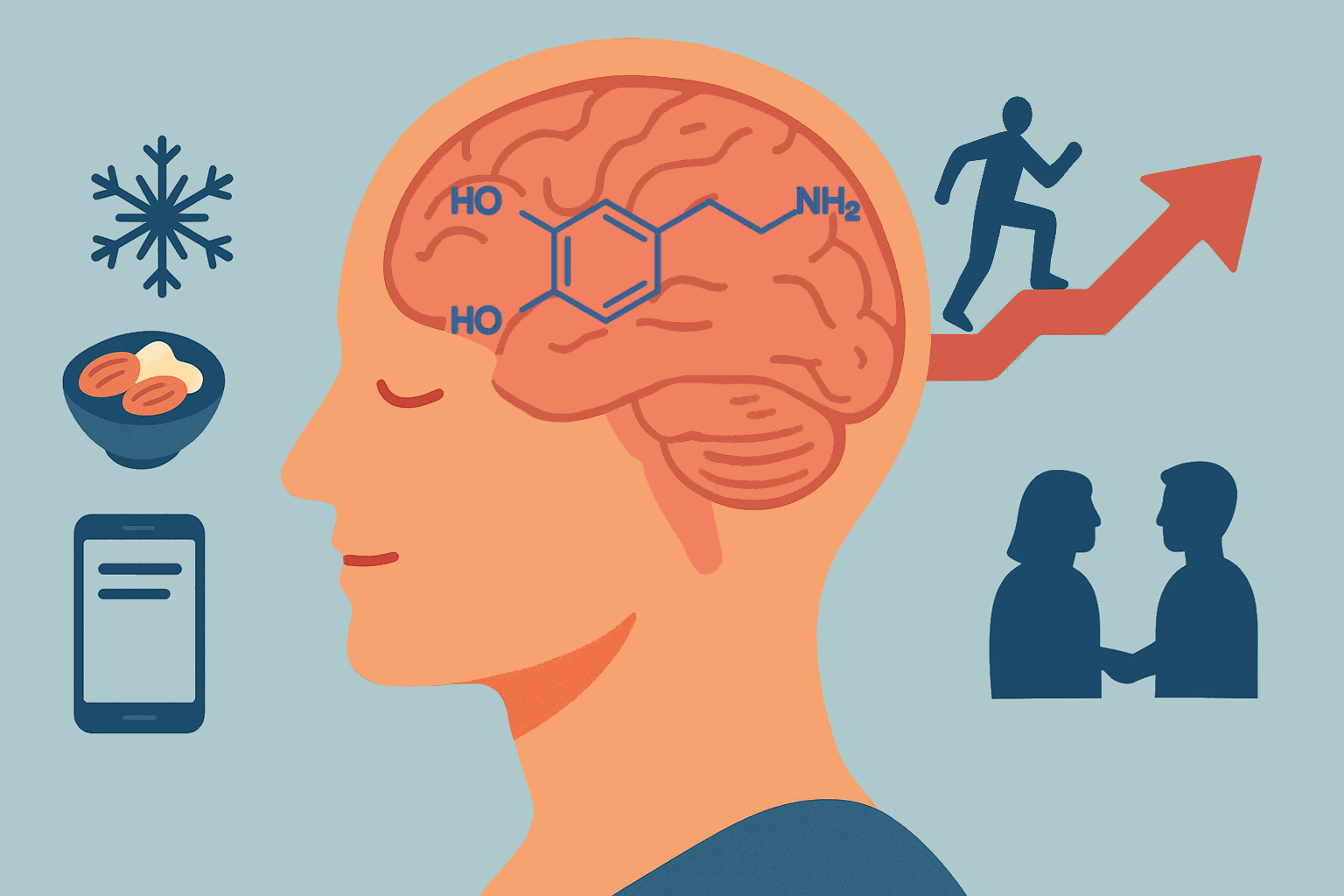
Harnessing Your Drive: Dopamine's Crucial Role in Motivation and Well-being
The Driving Force Within: Understanding Dopamine’s Impact on Your Health Journey Dopamine. You’ve likely encountered the term, often linked simplistically to pleasure. But this powerful brain chemical is far more nuanced and fundamental to our daily functioning and long-term health goals. Understanding how dopamine works – its cycles, its triggers, and how to cultivate a healthy …
Read More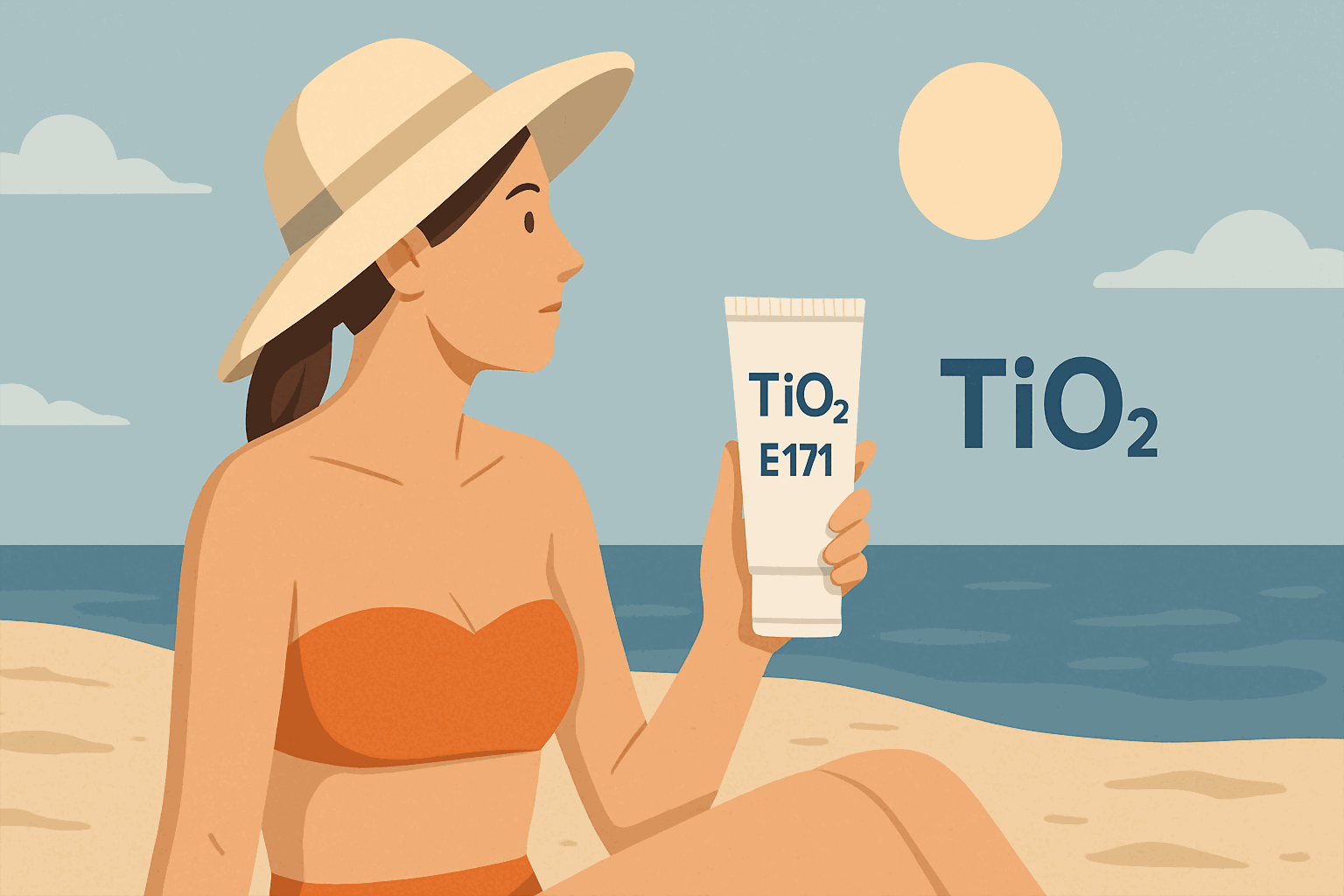
Titanium Dioxide in Your Cosmetics: Decoding the Science on Safety
Titanium Dioxide (TiO₂, CI 77891) in Your Cosmetics: Should You Be Concerned? An Evidence-Based Look Titanium dioxide (TiO₂), often listed as CI 77891 in ingredient lists, is a naturally occurring mineral extensively used in the cosmetics industry. You’ll find it in everything from sunscreens and foundations to powders and toothpastes. Its popularity stems from its brilliant white pigment …
Read More